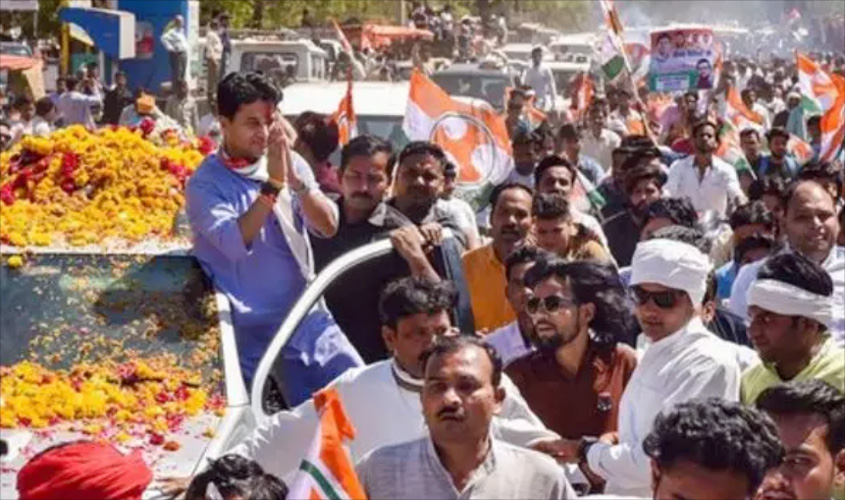Jyotiraditya was a childhood friend from age 6 to 10, before he left for boarding school. I recall an incident from 1976 when we were all new recruits to Class I at Campion, under the tutelage of the austere Miss Boyle.
From the warm colours of my nursery school, the relative sobriety of Campion enveloped me into the fearful grip of rules. My early impression of Miss Boyle was centred round her cold piercing eyes and stern gravelly voice. My resolve to never give her a reason to notice me was how I grew to inculcate a disciplined childhood.
My bag was full of books, neatly covered in brown paper. A diary with a time-table organised our weekly schedules. A sharp bell signalled the end of one period and the start of another. At age six, I was easily conscripted and willingly regimented. Education as a means of economic empowerment may be close to its sell-by date, but its ability to tame people into alignment and allow a semblance of order in a fractious world endures.
There was a long platform in front of the blackboard in our classroom. It faced 40 small tables with chairs tucked into them. I sat on the first row at one end of the classroom. One afternoon as Miss Boyle moved back towards the edge of the platform to make full use of the board, she tipped over and fell onto the floor right in front of my desk. I had never seen an adult fall before and looked with quiet awe at the sight of this symbol of authority lying crumpled before me. A murmur of awkward surprise and chaotic uncertainty echoed through the classroom. Miss Boyle lifted herself up with her elbow and asked everyone to remain seated. Her steady voice comforted me and I waited for her to climb back onto the platform.
But Jyoti walked up to her, gave her a hand and asked if she was alright. Miss Boyle’s eyes turned soft as she thanked him and shared a word of admiration for him with the whole class. I remember being very confused. He was being disobedient and she was being hypocritical. Before I even knew what these words meant, they had already begun to exert themselves in the world around me.
Many years later, as he rose to prominence in public life, I was able to untangle the memory of this incident for what it was. Even as a child, Jyoti had that rare but spontaneous instinct to stand apart amidst an unfamiliar environment and do what he believed in. Our unscripted moments are what grow to most authentically define us.
While the DNA of leadership is a part of the Scindia legacy, all our lives are left to the spectacular whims of chance. From losing his father early, Jyoti has come to a point in his life where a nation seems to turn its lonely eyes to him, to paraphrase the poet singer Paul Simon. The political landscape over the last few decades, cutting across party lines, has thrown up leaders who personify a more earnest sensibility even as they strive to navigate the inevitable rough and tumble of politics.
While he embarks on a new political path, his decision reverberates like a passing wave through a media in constant search of a story and a readership in constant hunt for distraction.
As markets tumble and the fragile interlinkages of globalisation unravel, a leader is one who can inspire confidence that extends beyond the sum of their actions.
A kind of illusion and paradox that is large and hypnotic enough to accommodate the unwieldy hopes of a crowd.
But the habit of leadership probably begins, when we learn to ignore the advice of others so that we can reach out and lend them a hand.
Anand R. Raghavan is Managing Director, Vijay Tanks & Vessels (P) Ltd.

